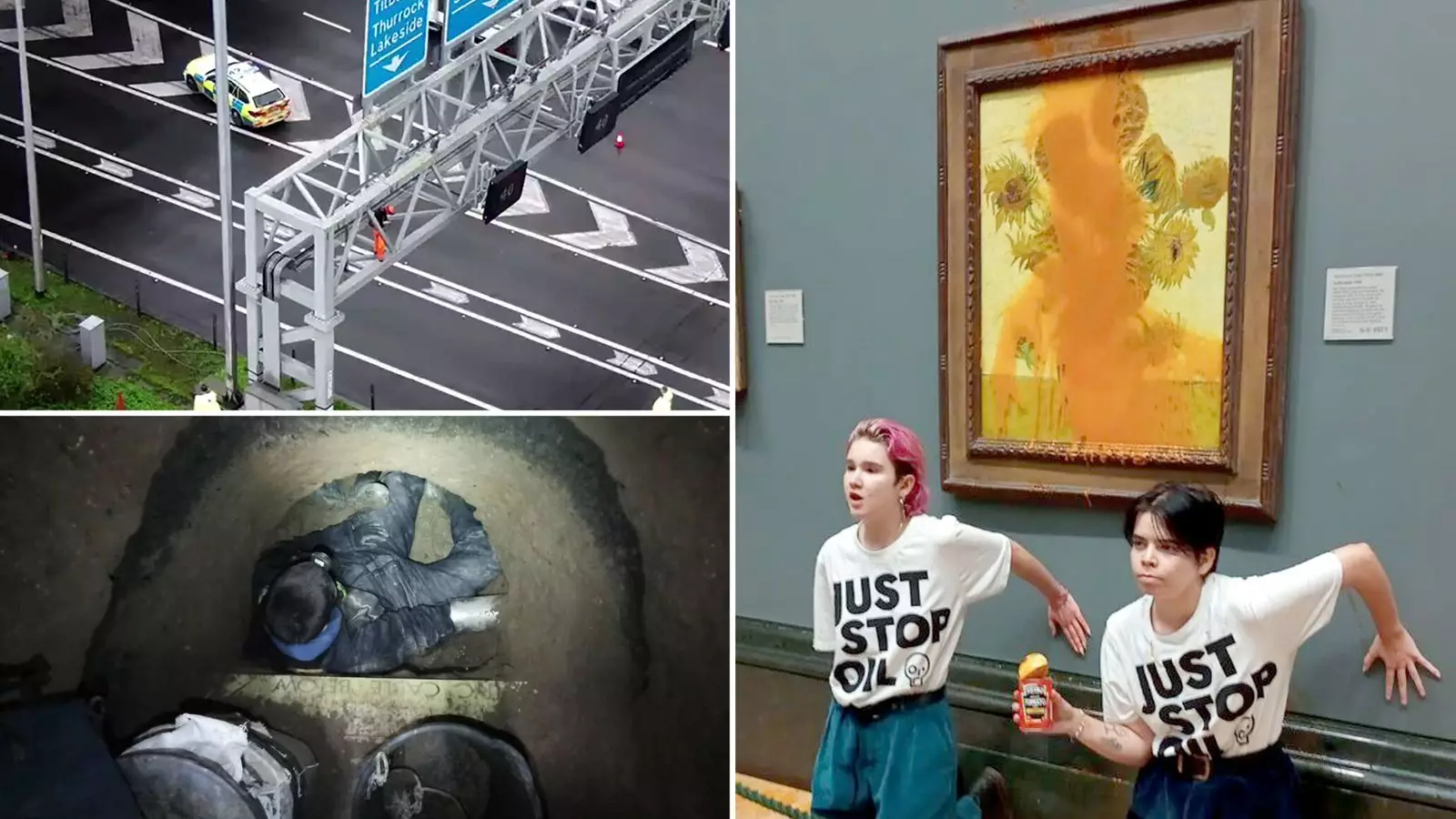The recent rulings regarding the Just Stop Oil activists exemplify the treacherous pathway where activism intersects with legal consequence. Co-founder Roger Hallam’s original five-year sentence for an M25 protest was reduced to four years following his High Court appeal, yet the intensity of the sentencing brings forth a critical discussion. This isn’t simply about individual penalties; it positions us to analyze society’s treatment of dissent and the potential silencing of voices advocating for climate change initiatives. In a world where climate inaction persists, such sentences appear not merely punitive but orchestrated to instill fear and suppress alternative discourses.
The backbone of democracy rests on the ability to engage in peaceful protest. Yet, here we see the judicial system functioning in a punitive manner that may deter necessary debates on vital issues like climate change. Authorities purport to protect public order, but doing so at the expense of civil liberties raises countless questions about the balance of power between state and citizen, especially in a nation that prides itself on being a beacon of rights and freedoms.
Excessive Sentencing: A Call for Reflection
The sentences handed down to Hallam and his fellow activists have stirred outrage, with arguments centering around their “conscientious motivation.” While the Crown Prosecution Service cites deterrence as paramount for public safety, such arguments warrant scrutiny. The principle of proportionality in law is broken when activists face years in prison for challenging governmental inaction. In contrast to other European nations, England’s response seems overtly draconian; in this instance, the scales of justice appear skewed.
The sheer economic claims put forth—citing costs exceeding £765,000 for delays and over £1.1 million for police responses—wield significant weight. However, when facing climate change, valid concerns about public order must contend with the broader implications of health and environmental degradation faced by humanity. Would the state rather prioritize economic calculations while ignoring the moral imperative for action? Perhaps it is time for a collective examination of where our priorities lie.
The Role of Public Perception
Public opinion plays a pivotal role in shaping the narrative surrounding these trials. Supporters of Just Stop Oil see their actions as critical in compelling urgent discourse on climate policy. Conversely, detractors focus on the societal disruptions created by such protests, pushing narratives that paint activists as obstructors of daily life. This disconnect highlights a chasm in understanding between immediate discomfort and the looming existential threat posed by inaction on climate change.
The backlash against these protesters seemingly intensifies when their demonstrations reach high-profile cultural institutions, such as when activists hurled soup at a Van Gogh painting. While the act invited condemnation, it catalyzed conversations across various platforms about the lengths to which activism might stretch. Balancing good faith protest with the perception of disruption is challenging, yet crucial, for both sides heading into an uncertain future.
Human Rights Versus State Control
Lawyers advocating for the Just Stop Oil activists vehemently argued that the sentences breached human rights. This notion, while pressing, takes root in a significant broader context: the state’s increasing propensity to silence dissent. How far should the state go in regulating moral actions rooted in public interest? If the state’s response becomes a tool of oppression rather than a means to promote the welfare of its citizens, where does that lead us?
The activism culture surrounding climate change has reached a boiling point; demands for radical action are rooted in desperation. Yet, the parallel legal responses seem aimed at inadvertently reinforcing the status quo—the very system activists seek to challenge. The urgent need for climate policy reform is hindered, not aided, by repressive measures that amplify fears instead of fostering understanding.
In the end, the Just Stop Oil trials may represent more than just the fate of 16 individuals. They beckon society to reflect on its values, priorities, and the compelling necessity for dialogues that embrace rather than criminalize passionate advocacy. The broader implications are profound and must resonate within both the political and public domains if we are ever to bridge the chasm between climate urgency and governmental inaction.


Leave a Reply